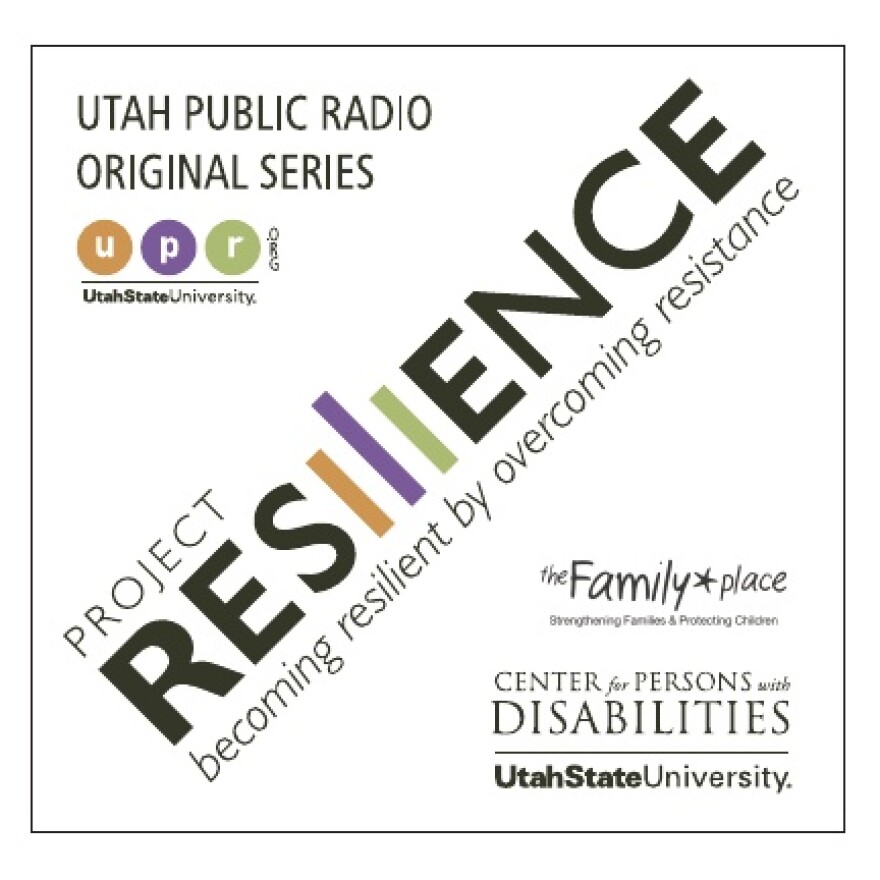Ah, that first year of college. It’s like this tidal wave of freedom. And pressure.
“It did not work well for me last year when I had to go to college. I did not like it, it was hard, too much learning and too much stress for me,” Elena McCarl said.
It’s a lot for anybody to handle.
“I have suffered from depression ever since I went to college, I just kind of realized I don’t know what I want to do with my life and it just kind of spiraled from there,” Tyler Myberg said.
But for those who are autistic, or have intellectual or learning disabilities, it can be overwhelming.
“So I started to get anxiety and headaches. Panic attacks. I used to lock myself in restrooms, just to have the lights off, just to help calm myself down,” Raji Azar, Jr. said.
Add in struggles with mental health, and college can be an enormous challenge. McCarl, Azar and Myberg are all from the greater Washington, DC area. All three deal with learning disabilities and mental health challenges. All three spoke out about their experience as part of UPR’s Project Resilience.
“I’ve had some students tell me they are very overwhelmed, very stressed, a lot of anxiety, a lot of depression,” sad Sue Reeves, who directs the Aggies Elevated program at Utah State University.
It’s a two-year residential program for students with developmental and intellectual disabilities.
“Some students don’t come and tell me, but it’s clear from their behavior that things are not going well,” Reeves said. “And often people with disabilities are given a script on how to respond to questions, like, ‘How are you doing.’(They say,) ‘‘Oh, I’m fine,’ because that is the socially acceptable thing to say.”
“At the time I didn’t know I was autistic. I always knew I was different but I didn’t know it was autism,” said Storee Powell of Smithfield, Utah, who graduated from Utah State University years ago.
For her, the academics were the easy part.
“And I was very stressed about being able to communicate myself and my needs good enough that I would be taken seriously,” Powell said. “I knew I had to put on an act to go be around other people, and doing it five days a week, at the level I was doing it, was absolutely physically and mentally exhausting.”
“It’s absolutely difficult for everybody,” Reeves said. “But for the folks we’re talking about who have intellectual or developmental disabilities, that’s that added layer of difficulty that can make things so overwhelming. Whatever difficulty their particular disability brings to their life, or how it affects their functioning, is just going to be multiplied in a stressful college environment.”
And sometimes, finding help is hard.
College counseling centers are typically pretty overwhelmed anyway. They’re not specifically trained to work with people with intellectual or developmental disabilities, so there’s the possibility of the perception of this mental health issue is just a manifestation of their disability, when it absolutely is not. People with disabilities have mental health concerns, just like anyone else.
That isn’t to say college is an impossible dream. Of the four people interviewed for this story, three of them finished their degrees. All of them said the experience was very challenging. Only one of them said counseling was helpful.
“I did go to a few psychologists to kind of talk through,” Myberg said. “Which did help a lot, just being able to talk about things and I kind of painted a new perspective on how to look at things, and I realized, ‘Oh, I actually have accomplished a lot, and it’s not as hopeless as I thought it was,’ which did help pull me out of it, by kind of compartmentalizing it into a checklist of things that I wanted to achieve in my life. I’d checked off a lot more boxes than I thought I did.”
Myberg eventually graduated from the East Coast Polytechnic Institute. McCarl did not graduate, and she struggled with trust: something she shared with others interviewed for this story.
“I just have a problem with therapists, I have a fear that they might tell on the police or they might verbally attack me or abuse me with their words,” McCarl said.
So how do you advise people whose brains work differently from the mainstream, who are
planning on college?
“Be aware,” Reeves said. “How does interrupted sleep, or not enough sleep, affect your mental health? What if you don’t eat regularly? How does that affect your functioning? Being able to manage medication if that is part of your life. Being able to do that independently is going to be a huge thing. Being aware of how you handle stress, and knowing the strategies that you’ll need to use. I would definitely make use of the disability resource center on campus. They may have a list of people that you could be referred to who have experience with mental health and people with disabilities."
“Tell people what you need, tell people what you’re feeling, and know that it’s valid,” Powell said. “You don’t need anyone’s permission to feel the things you’re feeling and the struggles you’re having challenges with. The other thing that I think is important is to have healthy relationships outside of the college community you can fall back on.”
Support Resources:
The Mental Health and Developmental Disabilities National Training Center has resources for professionals and families.
Their training section includes recorded webinars on self-care, invisible disabilities and more.
Music Credit
Half Mystery by Kevin MacLeod
License
This report includes interviews gathered through the Mental Health and Developmental Disabilities National Training Center, as part of Project Resilience.
This story was produced in partnership with the Center for Persons with Disabilities.
Editor's Note: The original picture for this story had been incorrectly labeled and was not of the correct individual. This has been corrected.



